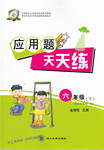题目内容
A report says older adults who test their minds with increasingly difficult projects have better mental ability than those who do less demanding activities.
To keep our brains sharp as we age, we are often told to keep our minds active. As the old saying goes, “Use it or lose it.” But, there is very little scientific evidence to support than.
Denise Park is head of the university’s Center for ? Vital Longevity. She designed a study in which she and her tern placed 221 healthy aging and older adults into one of three groups.
“We asked people to learn new things, like quilting or photography. We asked other people to just do fun things like being in a social group function but were not likely to have a very large effect.”
The subjects took part in their assigned activities for 15 hours a week over three months. At the end of that time, the researchers found that the adults who learned new skills, such as digital photography, showed the greatest improvements on memory tests.
No improvements were seen in the results of those in the social group that did activities together like going on field trips. There were also no improvements among the third group that listened to classical music or did crossword puzzles.
Denise Park believes one reason for improved memory in the active learning group is that its members were being pushed to learn new skills. The other groups took part in what she call receptive activities. Learning new skills may not cure age-related mental decline. But, Ms. Park thinks being mentally active slows down the process.
Denise Park says the latest information shows that the improvements lasted for at least a year. She and her team plan to do longer follow-up studies with all three groups. She also is interested in learning whether taking part in demanding mental activities delays the development of conditions like Alzheimer’s disease.
1.What may the social group be asked to do?
A. Learn to take photos.
B. Listen to music at home.
C. Go hiking together.
D. Do the dishes.
2.What did Denise Park and her team find?
A. Doing more exercise can help slow down our age-related mental decline.
B. Having a relaxing life is beneficial to keeping our minds sharp.
C. Keeping our minds active is associated with our health.
D. Learning new skills may help to keep our minds active.
3.If you want to keep your brain sharp you could_______.
A. go swimming with your friends.
B. play chess with your family.
C. learn how to repair the computer.
D. do crossword puzzles online
4.The text is likely to be selected from a book of______.
A. medicine B. education
C. aging D. science
 应用题天天练四川大学出版社系列答案
应用题天天练四川大学出版社系列答案Safety and Security Procedures
Your safety and the security of y our personal property are of the primary concern to those of us who welcome you as our guest. We urge you to take advantage of the following suggestions.
our personal property are of the primary concern to those of us who welcome you as our guest. We urge you to take advantage of the following suggestions.
YOUR VEHICLE Lock your vehicle and do not leave money or valuable items inside. We are not responsible for their loss. |
TRAVELING Be go |
GUEST ROOM SECURITY For additional security, use the deadbolt (插锁) provided on your door and make sure the windows are locked. As an additional precautious measure, please secure the secondary locks provided. Do not admit anyone to your room without first making identification. A one-way viewer is provided in your door to assist with identification. If there is any doubt about the person’s identity, please contact the Front Desk. |
SAFETY BOXES Do not leave money or valuables in your room or vehicle. We provide free safety boxes for you. We are not responsible for items left in room valued over $200. |
KEYS Safeguard your key. Please do not leave it in the door. Do not give your key to others or leave it unattended. Please leave your key at the Front Desk when you check out. |
FIRE Please familiarize yourself with the nearest fire exits. Report fire or smoke to the hotel operator. In the unlikely event of a fire, please move quickly and calmly to the nearest safe exit and leave the building. Avoid the use of the elevator. |
REPORTING Please report any suspicious activity, or safety concerns to management. |
1.What should you do when a fire breaks out according to the passage?
A. Try your best to put out the fire.
B. Report fire to your leader first.
C. Leave the building through the safe exit.
D. Use the electric lift to leave as fast as possible.
2.What should you do with a suspicious-looking stranger who knocks at your door?
A. Pretend you are not in the room.
B. Send him to the police station.
C. Get in touch with the Front Desk.
D. Let him in to make sure of his identity.
3.Where might you see these suggestions?
A. At a gym. B. At a hotel.
C. At a shop. D. At a bank.


 od at noticing things around you when sightseeing or traveling. Stay in heavily traveled areas. Don’t display large amounts of cash.
od at noticing things around you when sightseeing or traveling. Stay in heavily traveled areas. Don’t display large amounts of cash.